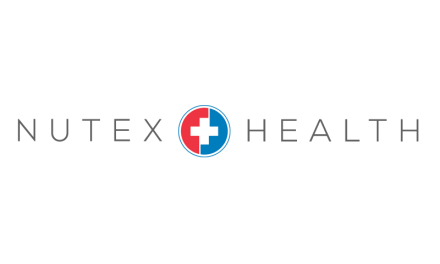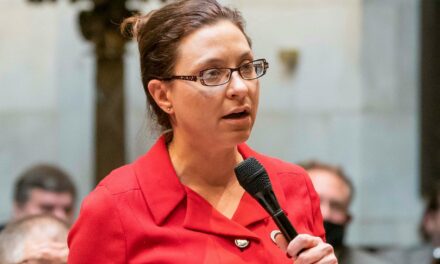
Updated: Mental health advocates push for Congress to ax Trump’s proposed cuts to block grant
Advocates are warning that the state’s recent efforts to improve mental healthcare could face a setback due to cuts proposed by President Donald Trump’s budget to a federal grant.
The federal government has instructed the state’s Department of Health Services to assume the cuts would go into effect and to draft their plan on how to use the Community Mental Health Services Block grant program accordingly. DHS assumed it would receive $6.4 million, $2.3 million less than it received the prior federal fiscal year.
The state plans to submit a final version of its draft this week, which would still be subject to approval by the federal government. Congress has yet to approve the budget.
Barbara Beckert, Disability Rights Wisconsin Milwaukee Office director, said the state has increased access to community services and decreased reliance on crisis and inpatient care in recent years. The grant has played a critical role in that change, she said.
“We’re concerned based on the frontline perspective that we have that the progress that we have made is at risk,” she said. “Potentially, Wisconsin may really take a step backward if we see these reductions move forward.”
The funding has been pivotal to help offer employment opportunities for people with mental illness, provide early interventions for at-risk children at risk and suicide prevention efforts, she said.
Mental Health America of Wisconsin is facing an estimated $125,000 cut that funds its suicide prevention program.
“It would really eliminate our ability to do the work that we do around suicide prevention,” said Shel Gross, director of public policy.
The National Alliance on Mental Illness Wisconsin could lose around $52,000 under the proposal, which would cut one staff member from their five-member team.
Crystal Hester, public policy and advocacy director, said that the grant is the organization’s largest funding source. She said the proposed cut would reduce support to their 31 affiliates throughout the state.
“This would really affect all the work that we’re able to do,” Hester said. “It would mean a lot to our office.”
Hester said the money helps fund community-based services that help people find jobs. “It’s really essential in Wisconsin,” she said.
In public comments on the draft, Family Ties of Wisconsin described the cuts as “a foolhardy – even reprehensible – proposal.” The organization, which provides peer support to parents, could lose about $58,000.
“With relatively small organizations, every cut is a big cut, even when the dollar amounts don’t look huge,” said Joanne Juhnke, policy director.
DHS spokeswoman Julie Lund called the cuts “very concerning” in an email. She said DHS is required by state and federal law to use portions of the block grant for specific programs.
“Unfortunately, if the proposed reduction in funding occurs, there will not be enough funds for programs beyond those that fall within the federal and state requirements,” she wrote in an email. “Funding for all programs outside of the federal and state requirements may be reduced or discontinued.”
There is no state or other revenue earmarked to offset the cuts, Lund said.
According to a document about the proposed budget impacts, the proposed level of funding will continue the program’s “focus exclusively on addressing the needs of adults living with serious mental illness and children experiencing serious emotional disturbances.”
“The budget includes $416 million for the mental health block grant and maintains the 10 percent set-aside in the block grant to provide early treatment to individuals with serious mental illness,” a White House spokesman wrote in an email. “Also, the mental health block grant comprises of 1 percent of state mental health funding.”
Juhnke said that while the House has approved the cuts, the Senate appropriations committee hasn’t met yet. The Senate tends to be more “cautious” about cuts and they’re hoping that some, if not all, of the funding will be restored, she said.
Gross said if the funding comes back, the state would have to redo its plan. “You say it’s 1 percent of all the spending, but it’s still very important dollars in our eyes,” he said. He added that the money provides “a lot of bang for the buck.”
“It’s really the multiplier effect,” he said. “A lot of the coalitions that we work with, because of our support, have developed and grown their funding sources. That doesn’t come from the block grants but it’s money that’s now supporting suicide prevention.”
Tammy Baldwin, D-Wis., a member of the Senate Appropriations Committee, said the “proposed drastic cuts” would “harm our state and Wisconsin families struggling with mental health issues.”
Editor’s note: This story has been updated to include comment from the White House and the Wisconsin Department of Health Services. This article first appeared in the Wisconsin Health News daily email newsletter. Sign up for your free trial here.





